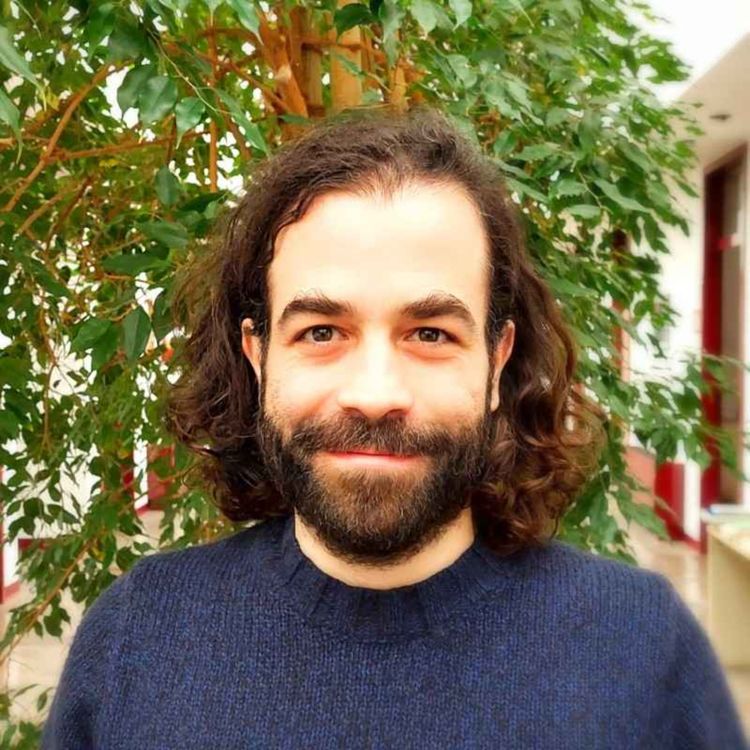Share

Tourism Geographies Podcast
A holistic and pluralistic perspective for justice through tourism: a regenerative approach
https://www.tandfonline.com/doi/full/10.1080/14616688.2024.2372114
AbstractJustice is integral in transformative tourism approaches that call for a complete restructuring of the travel and tourism sector worldwide. While justice through alternative tourism models promotes responsible, sustainable transitions in the tourism sector, these models are frequently informed by a perceived binary between the social and the environmental and long-held patterns of West-centric thought and West versus ‘the rest’ power dynamics, found both in tourism theory and practice and within justice frameworks. In this article, we explore the potential of the regenerative development paradigm to bridge these divides and adopt a pluriversal lens to devise a more just practice of tourism. The holistic, transformative tenets and pluralistic perspective of regenerative development and tourism are used to build a novel framework for justice. The framework’s capacity to analyse, unlock and catalyse place regeneration in different knowledge systems and restore just relationships has been leveraged in two rural areas in Colombia and Ecuador. Collecting data through mixed qualitative methods that combine reflexive ethnography with in situ and online interviews, we identified actions taken to address local inequalities and challenges while fostering pathways to the systemic transformation of residents’ livelihoods. These place-specific actions inspired by ancestral traditions have revitalised the areas’ ecosystems, including local human communities and the latter’s tourism activities. The discussion of results examines the potential of pluriversal regenerative development and tourism principles grounded in diverse knowledge and ethics frames to guide actions for systemic social and environmental justice.
More episodes
View all episodes

25. Counter-narrative place-making
24:45||Season 4, Ep. 25https://doi.org/10.1080/14616688.2025.2593978AbstractDominant narratives in tourism shape perceptions of place, often marginalising certain localities, people, and perspectives. This study examines digital counter-narrative place-making in rural communities and the equalising possibilities it can provide. We combine Doreen Massey’s relational theory of place with Hanna Meretoja’s dialogical narrative theory, following a dialogical narrative approach. Empirically, the study draws on a digital place-making project conducted in Ardgour, Scotland, and the Upper Kemijoki river area, Lapland. Utilising audio tours co-created with the local communities, we explore how the local narratives challenge and reframe prevailing tourist representations and culturally dominant narratives, fostering recognition of different perspectives, extending both residents’ and visitors’ sense of the possible, and enhancing equality and justice in tourism. Although community-created audio tours do not have the reach of dominant narratives and have other limitations in their equalising possibilities, they can establish deeper connections to place. Our relational theorisation of counter-narrative place-making contributes to theory in both tourism geography and the wider field of human geography, and our method of analysis can give new analytical ideas to both. A further contribution is our focus on the counter-narratives of rural communities, which has been lacking in previous tourism studies.
24. From Mauss’ gift theory to regenerative tourism
33:51||Season 4, Ep. 24https://doi.org/10.1080/14616688.2025.2604082AbstractWhat if the future of sustainable tourism lies not in transactions, but in the ancient wisdom of reciprocity and relational ethics? This conceptual paper applies Jaakkola’s theory adaptation approach by revising tourism concepts through the lens of Indigenous worldviews and anthropological Mauss’s (1925) theory of Gift and Counter-Gift. Rather than proposing a new theory, the paper reframes existing ideas to highlight relational ethics over transactional logics. By doing so, the article explores how tourism can benefit from understanding the deep social bonds created through reciprocity and contributes to developing the concept of regenerative tourism, while echoing ongoing Indigenous research.
23. Advancing accessible tourism geographies
41:02||Season 4, Ep. 23https://www.tandfonline.com/doi/full/10.1080/14616688.2025.2593982AbstractThis collection advances geographic approaches to accessible tourism through six contributions that collectively double the published resources on this topic within Tourism Geographies. Accessible tourism enables people with access requirements to participate in tourism with independence, equity, and dignity. Despite the growth of accessible tourism research, geographic, spatial, and/or mobilities approaches have been conspicuously absent. Thus, the contributions of this collection include new toolkits to support more inclusive and co-designed accessible tourism (Dickson et al., Citation2024; Lu et al., Citation2025; Wan et al., Citation2024) and greater conceptual depth related to embodied tourism (im)mobilities (Chan et al., Citation2025; Cockburn-Wootten et al., Citation2025; Farkic et al., Citation2025). Progressing towards accessible tourism’s aim of seamless and equitable tourism experiences, geographic perspectives will have an important role to play in addressing the crucial research gaps that remain: destination-scale analyses, whole-of-journey approaches, and inclusive stakeholder-led methodologies.
22. Reshaping landscapes and human–environment relationships through geotourism
30:33||Season 4, Ep. 22https://doi.org/10.1080/14616688.2025.2575314AbstractThis study examines how the designation of Batur as Indonesia’s first UNESCO Global Geopark in 2012 has reshaped volcanic landscapes, socio-economic structures, and cultural life in Bali. Drawing on the framework of Landscape Political Geology, it traces how geological forces, spiritual cosmologies, and global heritage regimes converge to transform both land and livelihoods. Using a mixed-methods approach—combining qualitative interviews, secondary statistical data, and documentary analysis—the study reveals how the geopark has generated new opportunities—particularly in tourism and service employment—while simultaneously marginalizing small-scale farmers and miners, restricting ritual access to land, and intensifying governance tensions between state authorities, external investors, and village communities. These processes have reconfigured Batur’s material and symbolic landscapes, shifting its status from a sacred mountain–lake complex to a commodified tourism asset, yet one that remains deeply embedded in local cosmologies. The study contributes to debates on the politics of nature and tourism geographies by showing how geoparks operate as contested arenas where geology, power, and culture are continuously renegotiated.
21. Indigenous-settler relations at work in Uluru-Kata Tjuta National Park’s tourism industry
33:19||Season 4, Ep. 21https://doi.org/10.1080/14616688.2025.2562976AbstractThe Australian settler government has repeatedly promised Indigenous peoples (Anangu) of Uluru-Kata Tjuta National Park that they will benefit from settler government’s use of their lands as a significant tourism destination, yet the Anangu community of Uluru remains one of the poorest communities in Australia. This article utilises historical analysis and qualitative interviews with Anangu, Parks staff, and tourism staff to chart key dynamics in the relationship between the tourism industry and Anangu over 39 years of Joint Management in the Park. We show how the prioritisation of settler logics of tourism and work over Anangu benefit is not just an arbitrary cultural decision meted out in day-to-day interpersonal relations but is built into the geographies and temporalities of work in the Park. Highlighting how Anangu benefit is deferred through settler logics of work draws attention to the possibility for alternatives that are founded on Indigenous lifeworlds. This article’s analytic focus on quotidian, relational dynamics in intercultural contexts brings insights from Indigenous and settler colonial studies into tourism research and demonstrates a new way of identifying opportunities for transformation in Indigenous tourism industries in settler colonies. From a practical perspective, these insights underscore the importance of developing shared understandings of what meaningful and good “work” is in intercultural industries and highlights possible interventions into entrenched dynamics between Indigenous and settler peoples in these contexts.
20. Regenerative shift: community-based ecotourism through culinary value chain and experiencing place lenses
29:49||Season 4, Ep. 20https://doi.org/10.1080/14616688.2025.2533471AbstractThis study investigates the regenerative potential of community-based ecotourism (CBET) through the lens of culinary value chains and experiential perspectives, analyzing their role in promoting cultural preservation, environmental stewardship, and local economic resilience. Employing Critical Place Inquiry (CPI) and ethnographic research methods, including participatory video, photography, walks, and mental mapping, the research examines the integration of Indigenous knowledge and place-based culinary traditions in fostering sustainable tourism models within Trà Vinh province, Vietnam. Findings reveal that culinary practices are deeply embedded within broader ecological, cultural, and social landscapes, functioning as socio-ecological systems that bolster local agency, facilitate intergenerational knowledge transfer, and promote environmental protection. The research identifies four key place-based resources—culinary diversity & cultural identity, gastronomic harmony & social cohesion, environmental conservation & sustainability, and cultural exchange & intercultural understanding—critical for understanding the significance of place in CBET. Case studies exemplify how community-led culinary initiatives, rooted in Indigenous knowledge, strengthen agricultural traditions, foster biodiversity, and enhance community resilience. The study demonstrates that incorporating participatory methods enhances the comprehension of place-based tourism practices, positioning culinary value chains as essential mechanisms for preserving cultural traditions and ecological well-being. It offers novel insights into the transformative capacity of localized, community-based ecotourism, highlighting the crucial role of Indigenous viewpoints in tourism planning and advocating for holistic, inclusive, and sustainable culinary tourism strategies that lead to net-positive socio-environmental outcomes.
19. Militourism
32:25||Season 4, Ep. 19https://doi.org/10.1080/14616688.2024.2417853AbstractThis review tracks the genealogy of the term militourism and its development and use since the early 1990s primarily through the scholarship of Teresia Teaiwa. It begins with a discussion of the concept’s emergence, with particular attention to the Pacific region, and examines other sites where the term has shed light on tourism and militarism’s collusions. In addition, the review considers scholarship that works with and through the term militourism, but which do not necessarily engage with its specific analytic. The review also examines the centrality of race, indigeneity, and gender in militourism’s analytical scope, and notes how its origins in the militarized Pacific necessarily tether the term to land and decolonial struggles.
18. Contested sacred space: state power, spatial politics, and heritage tourism
33:15||Season 4, Ep. 18https://doi.org/10.1080/14616688.2025.2495192AbstractThe global rise of heritage tourism has intensified struggles over the ownership, meaning, and spatial governance of religious sites, yet the contested interplay of ideology, power, and sacred space remains understudied. This article addresses this gap through a longitudinal analysis of China’s Famen Temple, where two decades of state‑led tourism development have reconfigured sacred space through historical reinterpretations, institutional transformations, and spatial negotiations. Drawing on critical heritage studies and qualitative fieldwork, the study reveals how official discourses strategically reframe religious pasts to align with contemporary economic and ideological agendas, manifesting in spatial restructuring, ritual commodification, and redistributed power among stakeholders. Heritage tourism here emerges as a contested process: state and commercial actors leverage tourism for territorial control and economic growth, while monks and local communities navigate, resist, and adapt to these changes. The tensions between economic imperatives, religious traditions, and authoritarian governance illustrate that sacred sites are neither passively secularised nor sacralised but continually redefined through socio‑spatial contestation. By framing religious heritage as arenas of political negotiation, this study advances critical debates on tourism’s role in spatialising state power, arguing that such transformations reflect broader global struggles over cultural legitimacy, authority, and the right to define “heritage” itself.
17. Bridging (over)tourism geographies: proposing a systems approach in overtourism research
37:58||Season 4, Ep. 17https://doi.org/10.1080/14616688.2025.2502507AbstractThis paper utilises bibliometric data on peer-reviewed publications to examine the characteristics and dominant narratives in overtourism research to date. Departing from earlier state-of-the-art reviews, it introduces a spatial perspective with a distinct focus on spatial processes and geographical scales. The analysis identifies six overarching themes in the literature, which predominantly centre on metropolitan contexts and are characterised by a normative critique of tourism. While the literature often identifies the causes of overtourism at either the global or local scale, proposed solutions tend to emphasise local-level responses, particularly through planning and destination management. The paper makes two key contributions: first, it highlights the need to broaden overtourism research beyond its current urban and metropolitan focus to encompass a wider range of geographical contexts; second, it emphasises the significance of engaging with geographies of scale to address overtourism not merely as a local planning challenge, but as a structural and systemic issue demanding multi-scalar interventions.